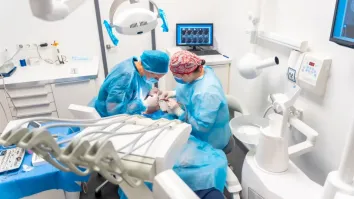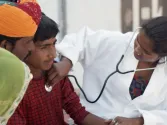Consumerisation of genetic testing: Perspectives from Asia
Rapid technological advancement in recent years has placed affordable genetic testing in the hands of consumers and the global direct-to-consumer genetic testing (DTC-GT) market is forecast to be worth over US$1bn by 2020.
Globally, there are over 250 companies serving this market, offering a range of DNA-based applications including forensics, ancestry, health, pharmacogenomics, fitness and nutrition. This growth has been fueled by increased public awareness and acceptance of genetic testing, consumer empowerment, and the desire for tailored products and experiences. There is also the willingness to pay for it. In fact, 80% of early adopters of DTC-GT services claim curiosity as a primary motivation and in response, 90% of DTC-GT companies use emotional appeal as their key marketing strategy.
Dr. Sidney Yee, Chief Executive Officer of Singapore’s Diagnostics Development Hub (DxD) incubation system, observed this same trend in the Asia Pacific. “There is a big penetration of health and wellness products however many of them aren’t yet pushing into the clinical evidence arena. It needs to be about more than just wearables and apps.”
“The technology is readily available and cost effective,” agreed Lance Little, Managing Director of Roche’s Asia Pacific Diagnostics business. “It can help to color in the missing pieces of the patient jigsaw puzzle.”
The diagnostic industry is facing the conundrum of products and services commoditisation as countries seek to improve care system routing for population health management. Genetic-based testing is another layer to this story and arguably, the ultimate future direction of sector convergence efforts. The fact that genetic testing serves both business-to-business and business-to-consumer channels also increases its attractiveness. Data stewardship, however, remains a dilemma.
Data privacy and integrity pose real concerns
When consumers submit genetic samples for processing, they not only share sensitive data about themselves but also their family members who may not have consented. From a broader, longer term perspective, the sharing of genetic data may have implications on other aspects of life such as insurance premiums, employment prospects and even relationships, not to mention the potential for data breaches. Personal health data is already one of the most treasured on the dark web. Sixty-five percent of people willing to use a DTC-GT service report privacy as a top concern, specifically the sharing of their data with third parties such as pharmaceutical companies.
“We look at three elements – where the data is stored and data security, how it moves for example on a blockchain, and how will it support clinical decision-making?” said Little. “With consumer genetic platforms, especially those where the data sets could be utilised, we see the need for appropriate governance and regulation.”
Despite efforts to put consumers at ease, recent reports suggest there are ways to reverse the data deidentification process. So whilst DTC-GT companies are only providing a focused genomic report back to consumers, the data set likely retains the full genetic sequence collected. The technology is moving faster than policy can keep up and as such, the expectation of regulations covering DTC-GT in its entirety, if at all, should not be considered a safeguard.
Consumer health data is essentially the first to be readily available as traditionally institutionalised patient records have been difficult to access. Thus, organisations such as DxD and Roche are actively working with governments to help shape the regulatory landscape of consumer health platforms.
“Consumer genetic data could be very beneficial to health systems if used properly,” said Little. Yee added, “DxD has a unique role; sitting between the public and private sectors, we can help drive innovation and bridge trust so as to converge clinical and wellness decision-making. But the barrier must be higher for companies to leverage this data, and to protect consumers.”
There are also concerns over the accuracy of the results and subsequent recommendations or decisions taken. Studies comparing genetic test results from different DTCGT companies of the same individual showed disparity in risk predictions and in some instances, the reports are contrasting. Moreover, there are epidemiological considerations with regard to disease patterns and socioeconomic factors as have been proven by DTC-GT studies in countries like Japan and India.
“Phenotypes are varied across populations and the definition of wellness is just as varied across cultures,” Yee pointed out. “Any recommendations or approaches for these populations will need to be localised and this is a space start-ups can play a key role in. ”Commenting on diversity in the region, Little noted that “culture is a key factor and does influence patients’ decisions. For example, in some countries Human Papillomavirus is more often considered a sexually-transmitted disease – with the stigmas therein – rather than as a precursor to
cervical cancer.”
The psychological impact needs to be addressed as well. Thirty-four percent of people willing to use DTCGT services are concerned about discovering something in their genetic profile that they would rather not have known. As a result, some DTC-GT companies are now offering genetic counseling as an add-on value stream.
How are DTC-GT companies entering the market?
DTC-GT is still a nascent industry with experimentation by large and small players including those in and outside of the Life Sciences sector. According to research by KPMG, market entry principles boil down to four pillars:
1. Early dialogue with regulators (country-by-country basis)
2. Promotion of empowerment as a consumer adoption technique
3. Wrap-around service to support taking action on genetic findings
4. Address privacy concerns up front in simple and clear language
“In this age of big data and analytics, it is especially important that the industry continues to engage the different stakeholders including consumers,” Yee remarked. “This will enable companies to take a pulse check on the needs and wants of the population and to continue to be relevant to their healthcare demands.”
When asked what advice he would give to entrepreneurs in the consumer genetic testing space, Little shared, “Put the patient at the center in terms of data quality, validity and advice. This will help us develop the medical standards that need to be in place to merge these datasets.”



















 Advertise
Advertise






